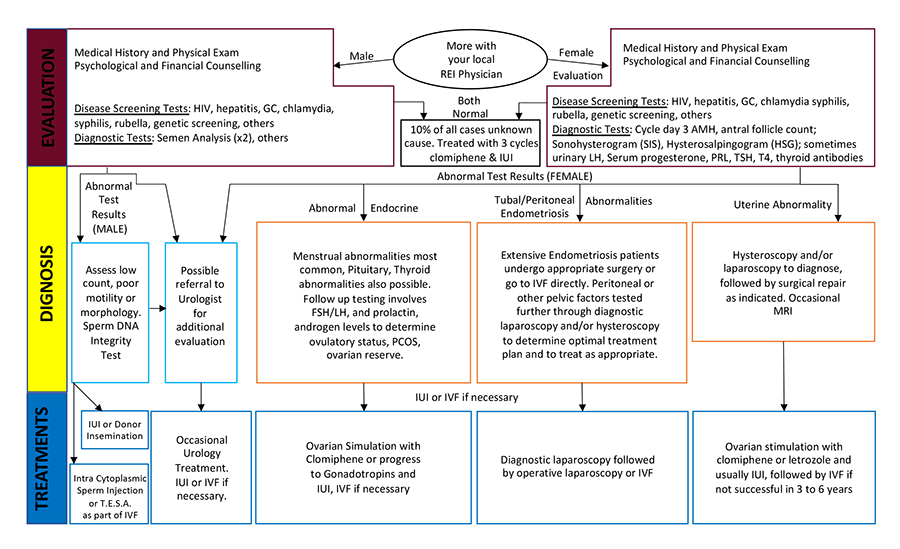All Categories
Featured
Table of Contents
What Does Fertility Clinic Albuquerque Nm Cost?
Many individuals need fertility help. This consists of guys and females with infertility, lots of LGBTQ people, and single individuals who prefer to raise kids. An estimated 10% of women report that they or their partners have ever received medical aid to become pregnant. Regardless of a need for fertility services, fertility care in the U.S.

Usually, fertility services are not covered by public or private insurers. Fifteen states need some private insurance companies to cover some fertility treatment, however significant gaps in protection remain. Just one state Medicaid program covers any fertility treatment, and no Medicaid program covers artificial insemination or in-vitro fertilization.

This suggests that in the lack of insurance coverage, fertility care is out of grab lots of people. Fewer Black and Hispanic females report ever having used medical services to end up being pregnant than White females. This is an outcome of numerous aspects, consisting of lower incomes usually amongst Black and Hispanic ladies in addition to barriers and mistaken beliefs that may deter women from looking for help with fertility.
How Much Does Fertilization Center New Mexico Service Cost?
Transgender people going through gender-affirming care might also not meet requirements for "iatrogenic infertility" that would certify them for covered fertility conservation. Lots of individuals need fertility help to have children. This could either be due to a diagnosis of infertility, or due to the fact that they are in a same-sex relationship or single and desire children.

Fertility treatments are pricey and typically are not covered by insurance. While some personal insurance strategies cover diagnostic services, there is very little coverage for treatment services such as IUI and IVF, which are more expensive. The majority of people who utilize fertility services need to pay of pocket, with costs often reaching thousands of dollars.
About 25% of the time, infertility is triggered by more than one aspect, and in about 10% of cases infertility is unusual. Infertility estimates, however do not represent LGBTQ or single people who may likewise require fertility help for family building. Therefore, there are different factors that might trigger individuals to look for fertility care. large dumpster rental.
What Is The Best Ivf Doctor Albuquerque Nm?
Client Info Series. 2017 Our analysis of the 2015-2017 National Survey of Family Development (NSFG) finds that 10% of females ages 18-49 state they or their partner have ever talked with a medical professional about methods to help them end up being pregnant (data disappointed).3 Among women ages 18-49, the most commonly reported service is fertility advice ().
Many patients lack access to fertility services, largely due to its high cost and minimal protection by personal insurance coverage and Medicaid. As an outcome, many individuals who utilize fertility services should pay of pocket, even if they are otherwise insured. Expense expenses vary widely depending on the client, state of house, provider and insurance plan (cheap dumpster rental near me).
Figure 3: Fertility Treatments Normally Expense Clients Countless Dollars Insurance protection of fertility services differs by the state in which the person lives and, for individuals with employer-sponsored insurance coverage, the size of their company. Lots of fertility treatments are not thought about "medically essential" by insurance business, so they are not generally covered by personal insurance coverage strategies or Medicaid programs.
How Much Does Infertility Centers New Mexico Service Cost?
g., testing) are most likely to be covered than others (e. g., IVF). A handful of states require coverage of fertility services for some fully-insured personal strategies, which are managed by the state. These requirements, however, do not use to health plans that are administered and funded straight by employers (self-funded plans) which cover six in 10 (61%) employees with employer-sponsored medical insurance.
2 states (CA and TX7) need group health plans to provide a minimum of one policy with infertility protection (a "mandate to offer"), however employers are not required to select these strategies. Figure 4: The Majority Of States Do Not Need Personal Insurance Companies to Provide Infertility Benefits However, in states with "required to cover" laws, these only apply to specific insurers, for particular treatment services and for certain clients, and in some states have financial caps on costs they must cover ().
In other states, practically all insurance companies and HMOs are included in the required (budget dumpster rental). Lots of states offer exemptions for small companies (
Latest Posts
Best Infertility Clinic Albuquerque Nm You Can Buy
What Are The Best Fertility Website New Mexico
Who Has The Best Infertility Center Albuquerque Nm Service?